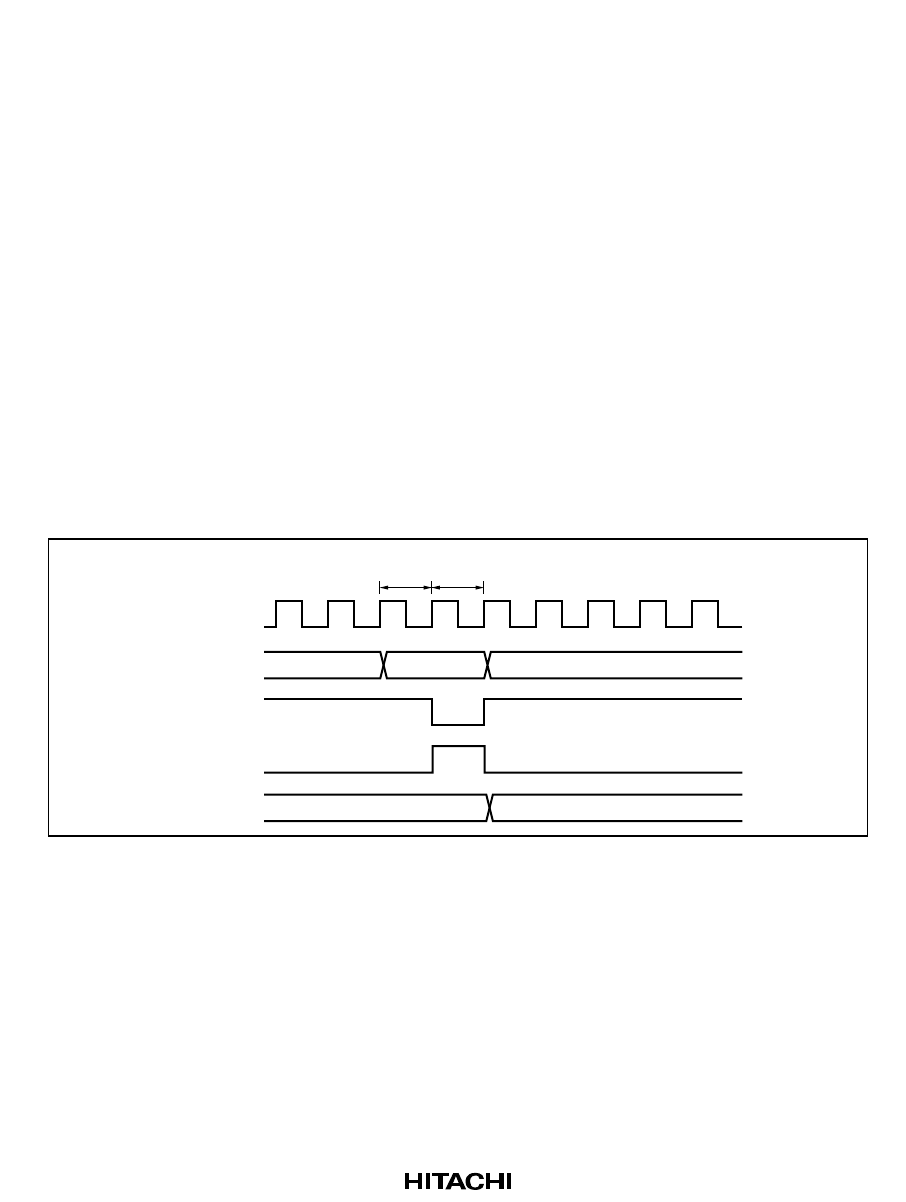
Rev. 1.0, 07/01, page 175 of 372
12.6 Usage Notes
The following types of contention or operation can occur in timer W operation.
1. The pulse width of the input clock signal and the input capture signal must be at least two
system clock(φ) cycles; shorter pulses will not be detected correctly.
2. Writing to registers is performed in the T2 state of a TCNT write cycle.
If counter clear signal occurs in the T2 state of a TCNT write cycle, clearing of the counter
takes priority and the write is not performed, as shown in figure 12-24. If counting-up is
generated in the TCNT write cycle to contend with the TCNT counting-up, writing takes
precedence.
3. Depending on the timing, TCNT may be incremented by a switch between different internal
clock sources. When TCNT is internally clocked, an increment pulse is generated from the
rising edge of an internal clock signal, that is divided system clock (φ). Therefore, as shown in
figure 12-25 the switch is from a low clock signal to a high clock signal, the switchover is seen
as a rising edge, causing TCNT to increment.
4. If timer W enters module standby mode while an interrupt request is generated, the interrupt
request cannot be cleared. Before entering module standby mode, disable interrupt requests.s
Counter clear
signal
Write signal
Address
φ
TCNT address
TCNT
TCNT write cycle
T1 T2
N H'0000
Figure 12-24 Contention between TCNT Write and Clear


















